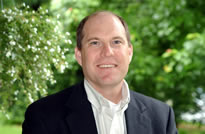![]()
In a Time of War, A Religion of Peace
by Geoffrey Biddulph
In the wake of September 11, there was a huge increase in sympathy for religious faiths of all kinds. President George W. Bush led the effort by publicly praying and making a concerted effort to appeal to Muslims who did not share the violent fanaticism of Osama bin Laden.
It did not take long for secular commentators uncomfortable with this new promotion of faith to fight back. Since then, the mainstream press has been filled with articles saying that virtually all religions promote fanaticism and drawing parallels between Muslim extremists and Jewish and Christian extremists. Although many of these articles are not explicit, the message is that all religions cause extremism in God’s name and therefore religions should be shunned. The recent scandals in the Roman Catholic church have helped lend yet more legitimacy to opinion-makers who glory in making religion look bad.
The April 7 New York Times carried a column by Maureen Dowd in this vein. Ms. Dowd wrote: “at precisely the moment when religion should have a calming influence, it has a dispiriting influence. Just when people need religion to bring them peace, it brings them war or abuse or just plain pain.” Ms. Dowd conveniently wrapped all religions in a package of intolerance and drew parallels between bin Laden’s fanatics, the Catholic scandal, extremist Jews and Christian evangelicals. In the end, she has nothing positive to say about any religion at all. Instead of praising the President for trying to build bridges between the faiths, she sarcastically calls him the “Believer in Chief.” So, Ms. Dowd’s message is that even if you try to do something positive about the differences between the world’s religions, you will be subject to unrelenting journalistic bombast.
It is worth noting that the very day that Ms. Dowd’s column appeared, there was a general conference meeting of a certain church where nothing but peace was discussed. There were no calls for attacking other religions, either verbally or physically. There weren’t even any hints of intolerance towards people of other faiths. All of the messages were positive and uplifting. If Ms. Dowd had been listening to the messages at general conference, she might have been surprised to hear people talking exclusively about helping others, promoting tolerance, boosting interdependence and supporting peace.
Earlier in the conference, President Thomas S. Monson quoted perhaps one of the best scriptures for our challenging times, the talk by the Savior in 3 Nephi 11 28-29: “There shall be no disputations among you. . . . For verily, verily I say unto you, he that hath the spirit of contention is not of me, but is of the devil, who is the father of contention, and he stirreth up the hearts of men to contend with anger, one with another. Behold, this is not my doctrine, to stir up the hearts of men with anger, one against another; but this is my doctrine, that such things should be done away.” That was the spirit of the conference and of the hundreds of thousands of Latter-day Saints who participated in the event, either in person or remotely.
So, on the one hand we have a general disdain for religion in general as war-mongering. And on the other we have a religion that promotes peace and tolerance and actually practices what it preaches. An interesting contrast indeed.
Did the scriptures predict this state of affairs? You could make a strong argument they do. Isaiah 2:2 says that “in the last days..the mountain of the Lord’s house shall be established in the top of the mountains, and shall be exalted above the hills; and all nations shall flow unto it.” This scripture has been widely quoted as being partly fulfilled by the 2002 Winter Olympics, as nations from around the world came to a city whose skyline is dominated by a soaring temple of the Lord.
Isaiah 2:3 goes on : “And many people shall go and say, Come ye, and let us go up to the mountain of the Lord, to the house of the God of Jacob; and he will teach us in his ways, and we will walk in his paths; for out of Zion shall go forth the law, and the word of the Lord from Jerusalem.” Before the Olympics, the Church was subject to some of the same unrelenting scorn Ms. Dowd unleashes on all religions in her column. Several periodicals pointedly called Utah a “theocracy,” and journalists came ready to battle with anybody trying to prosyletize them and keep them out of the bars. But by the end of the Olympics when journalists had actually wandered through Temple Square and met hundreds of volunteers who freely and cheerfully gave of their time and spirit, they could find nothing more to criticize. Nobody tried to convert them, and they could actually find alcoholic drinks. The press coverage turned almost universally positive. The most cynical of the press were left admiring the show put on in Salt Lake City and the graciousness of the hosts.
God has truly taught his ways to the people through the attention given to Utah and the Olympics, and we can only hope and pray more people will “walk in his paths.”
At least one of the laws that we can hope will go forth from Zion is the law of peace and forgiveness so that people fighting over God’s words in Jerusalem can find accommodation. How many additional people will join the church because of the positive impression left in the wake of the Olympics? It’s impossible for us to know, but the scriptures seem to indicate this was a crucial moment.
It is striking to me that at a time when the volume of religious intolerance seems to be rising throughout the world, the message from the first Presidency is consistently one of patience, humility, charity and respect. In Nigeria, Christians and Muslims clash on a daily basis. In Pakistan, Muslim terrorists attack a small Christian church and assassinate a Jewish reporter. In Europe, Jews are suffering a new round of intolerance and anti-semitism.
Meanwhile, President Gordon B. Hinckley’s voice is one of constant optimism and unfailing faith. He does not take sides but seems to see all of us as part of the same human family. He and the other leaders of the church seem to have a very clear view of where we are headed and the importance of following Jesus’ teaching while we are here. As the waters of conflict seem to be rising, their message is founded on the rock of love and tolerance, not on the sands of conflict and contention.
President Hinckley pointed out that the church has grown to more than 11 million from the original six members in the space of 170 years: “From that quiet village has grown a movement that today is scattered through some 160 nations of the earth…it is a phenomenon without precedent.”
Speaking of the Olympics, the Prophet said he met with presidents, ambassadors and leaders of all kinds. He pointed out that Brigham Young predicted this would happen more than 150 years before. “We have witnessed the fulfillment of that prophecy in recent days,” he said. Such a prophecy would have seemed absurd to a visitor to the cricket-infested Salt Lake valley in 1849, when the prophecy was made, yet it happened. It is a testimony to the overarching nature of God’s plans that we look at the scriptures and see them fulfilled around us and we hear the words of the prophets and see prophecies fulfilled around us.
Where is the religion of peace? How could anyone doubt where it is after listening to Elder M. Russell Ballard speak during conference on “The Peaceable Things of the Kingdom?” As Elder Ballard said: “On more than one occasion, the Lord urged His followers to be “peacemakers,” promising that such would “be called the children of God” (Matt. 5:9). That concept is woven throughout the scriptures, creating a patchwork of peace through parable and proclamation: “Agree with thine adversary” (Matt. 5:25). “Love your enemies” (Matt. 5:44). “Judge not” (Matt. 7:1). “Love thy neighbour as thyself” (Matt. 22:39). “Condemn not” (Luke 6:37). “Forgive” (Luke 6:37). “Love one another” (John 13:34)….. “Live in peace,” said the Apostle Paul, “and the God of love and peace shall be with you” (2 Cor. 13:11).”
What a different place the world would be if we could actually live these principles. There is a religion that is about peace. We especially need it now.
2002Meridian Magazine. All Rights Reserved.

















